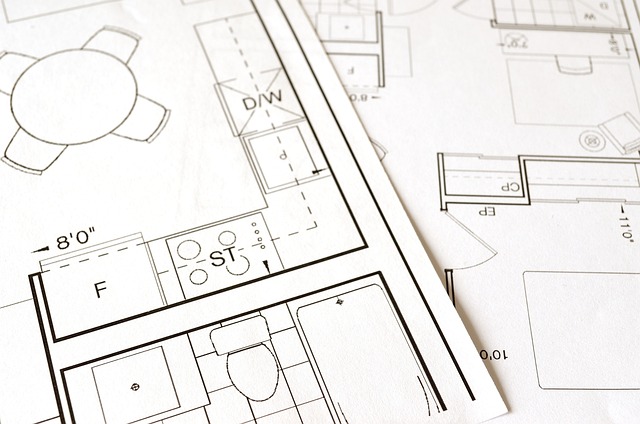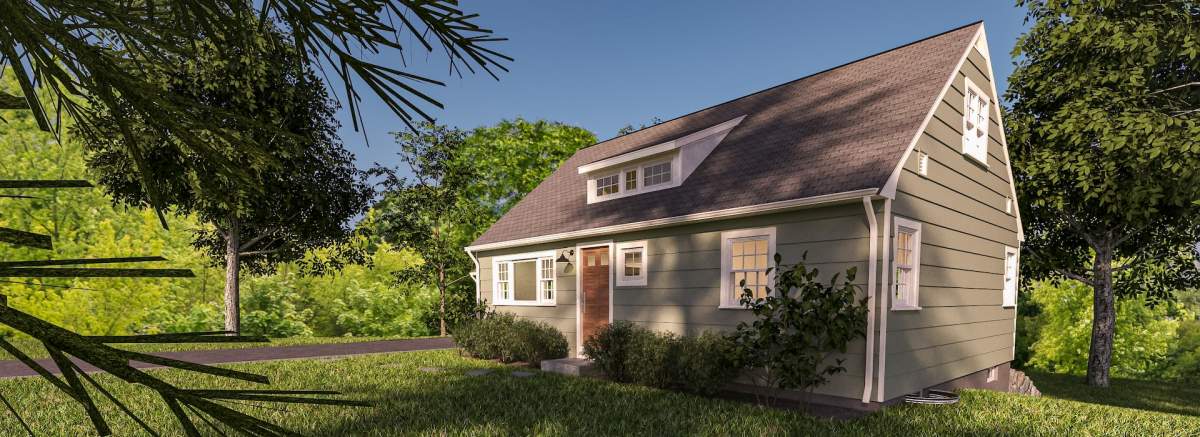do you need a permit to build an ADU in Maryland and Washington DC
Are you considering adding a second unit to your property? An accessory dwelling unit (ADU) is an efficient and cost-effective way to create additional living space for families, rents, or just extra storage. Whether it’s a tiny house in the backyard or an apartment over the garage, attention needs to be given to legal regulations before building an ADU – especially if you live in Maryland or Washington DC. Promising as this concept may seem, understanding local codes and permits will help you avoid headaches and expenses further down the road. In this blog post, we’ll answer some commonly asked questions about obtaining necessary permits when applying for an ADU in either location so that homeowners can plan confidently knowing their plans comply with all applicable laws!
Overview of ADUs and their Benefits
Accessory Dwelling Units (ADUs) are secondary housing units that provide homeowners with a versatile living space that can serve multiple purposes. ADUs can be used as guest houses, an office, rental properties, or even a home for family members. They are often built in the backyard of a primary residence but can also be attached or located above a garage. The benefits of ADUs are plentiful: they provide homeowners with extra income, increase property value, and offer flexible living options for families or individuals. Furthermore, ADUs are an excellent solution to housing shortages as they allow more people to live within existing neighborhoods, without compromising the character of the community. Plus, since ADUs are typically eco-friendly and energy-efficient, they help reduce our carbon footprint. Overall, investing in an ADU is a smart choice for homeowners who want to maximize their property’s potential while also contributing to sustainable living.
Understanding the requirements for obtaining a permit for an ADU in Maryland
If you’re considering building an accessory dwelling unit (ADU) in Maryland, it’s crucial to understand the requirements for obtaining a permit. First, the unit must be attached to or within the main dwelling, have its entrance, and be no larger than 1200 square feet or 30% of the primary home’s square footage, whichever is smaller. Secondly, the property must have sufficient parking, and the ADU cannot be rented separately from the main dwelling. Additionally, the property owner must obtain a building permit and have an inspection before the ADU is occupied. Understanding these requirements is the first step toward building a legal and successful ADU in Maryland.
Understanding the requirements for obtaining a permit for an ADU in Maryland
If you’re considering building an accessory dwelling unit (ADU) in Maryland, it’s crucial to understand the requirements for obtaining a permit. First, the unit must be attached to or within the main dwelling, have its entrance, and be no larger than 1200 square feet or 30% of the primary home’s square footage, whichever is smaller. Secondly, the property must have sufficient parking, and the ADU cannot be rented separately from the main dwelling. Additionally, the property owner must obtain a building permit and have an inspection before the ADU is occupied. Understanding these requirements is the first step toward building a legal and successful ADU in Maryland.
What permits do you need to build an ADU in Washington DC?
Building an accessory dwelling unit, or ADU, in Washington DC can be a great investment for homeowners looking for an additional source of income or a way to accommodate family members. However, before starting construction, it’s important to obtain the necessary permits to avoid fines and legal complications. In Washington DC, a building permit and a certificate of occupancy are required to build an ADU. The building permit ensures that the construction meets safety and zoning codes, while the certificate of occupancy certifies that the structure is safe for occupancy. It’s important to consult with a licensed contractor and the DC Department of Consumer and Regulatory Affairs to ensure that all necessary permits and requirements are met. With the right permits and a solid plan, building an ADU in Washington DC can be a successful and profitable endeavor.
 Navigating local zoning regulations to ensure your ADU is compliant
Navigating local zoning regulations to ensure your ADU is compliant
Navigating the web of local zoning regulations can feel overwhelming, but it doesn’t have to be. Understanding the guidelines for accessory dwelling units (ADUs) in your area is crucial to ensuring your project is compliant. This includes requirements for building size, setbacks, parking, and occupancy limits. It’s essential to do your research and work closely with your local planning department to make sure you are adhering to all necessary regulations. By following the rules, you can feel confident that your ADU will meet local codes and regulations and provide a safe and comfortable living space for you or your tenants.
Tips for overcoming potential challenges when applying for a permit in either state
Applying for a permit can be a tedious process, and several challenges can arise during the application process. However, there are a few tips that can help to overcome these potential challenges. First and foremost, it is essential to research the specific requirements and regulations of the state in which you are applying for the permit. Additionally, it is crucial to prepare all necessary documentation and paperwork ahead of time, including any relevant permits or licenses. It is also helpful to maintain open communication with relevant agencies and individuals involved in the application process. Finally, try to remain patient and persistent throughout the process, as it can be lengthy and require multiple rounds of communication and negotiation. Following these tips can help to overcome potential challenges and increase the likelihood of a successful permit application.
Learning what documents are needed to apply for a permit as well as how long the process may take
If you’re planning to apply for a permit, it’s important to understand the documents you need to have to complete the application process. Depending on the type of permit you want, you may be required to submit documents such as identification, proof of residency, and background checks. The process of obtaining a permit can vary depending on where you live and the type of permit you’re seeking, so it’s important to plan accordingly. Some permits may only take a few weeks to process, while others may take several months. It’s always a good idea to start the application process early and gather all necessary documents as soon as possible to avoid any delays.
In conclusion, Accessory Dwelling Units offer numerous benefits and are suitable for a wide range of residential purposes. When it comes to building an ADU in Maryland or Washington D.C., understanding the necessary permits, navigating local zoning regulations, and assembling the required paperwork can help streamline the permitting process. However, there may still be challenges along the way that can impact timeline estimates. Through research and planning ahead of time, you can ensure your ADU project is completed promptly while adhering to local laws and regulations. Despite any potential obstacles, investing in such a valuable asset is sure to maximize your space utilization while providing extra income—two aims that make investing in an ADU a no-brainer! Contact Winthorpe Design and build for help and guidance for your next home-building project.






